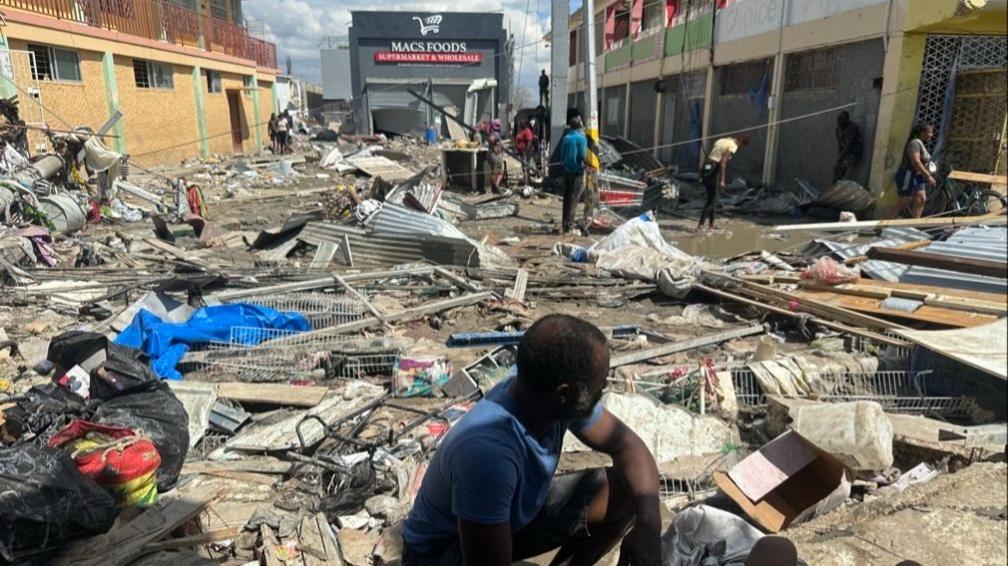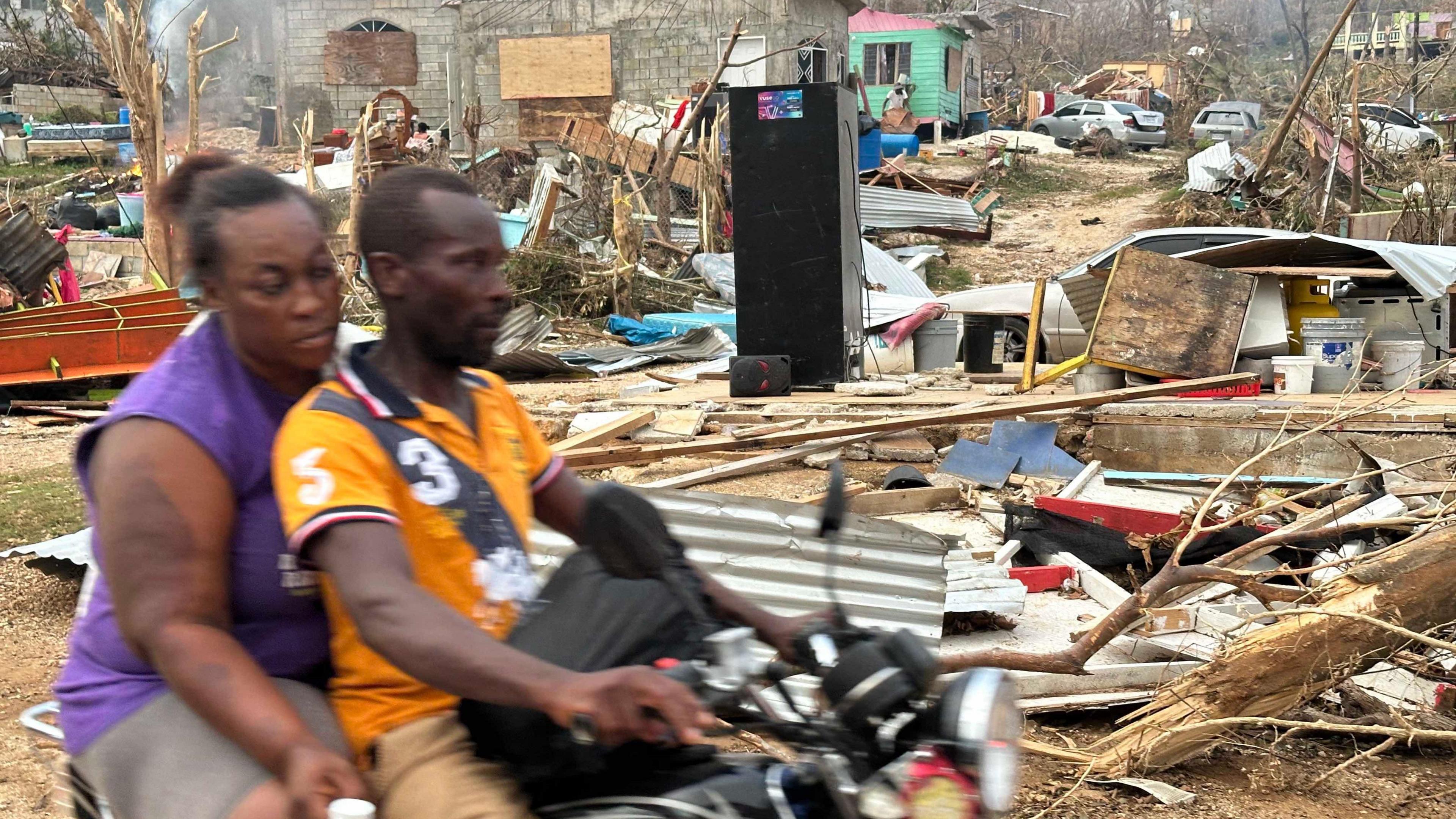'We had to create a human chain to evacuate' - Jamaican hospital rebuilds after hurricane
Watch: BBC visits battered hospital in Jamaica as recovery underway
- Published
As you drive into Falmouth, there's still a moat of dirty looking standing water surrounding the town.
On the coastal road, as you slowly push forward in the car, the bow wave breaks and you are hit by the smell of sewage.
Passing cars drive slowly so as to not send the spray through the window.
This part of the historic town was hit badly by Hurricane Melissa. The regional hospital is on the low-lying road that is the western route into its centre.
It was flooded as the water swept across the mangrove and into the facility.
Donna-Marie Hamilton-Wallace, the head of nursing at the hospital, was on duty at the time.
"It was devastating for the patients and the staff, the lower level was flooded because of the storm surge and we had to create a human chain to evacuate them to the higher level," she said. "It was frightening but I'm glad patients and staff are all okay."
I first visited the hospital the morning after the storm hit.
Orderlies were clearing rubble from buildings, without sleep for days facing an insurmountable challenge.
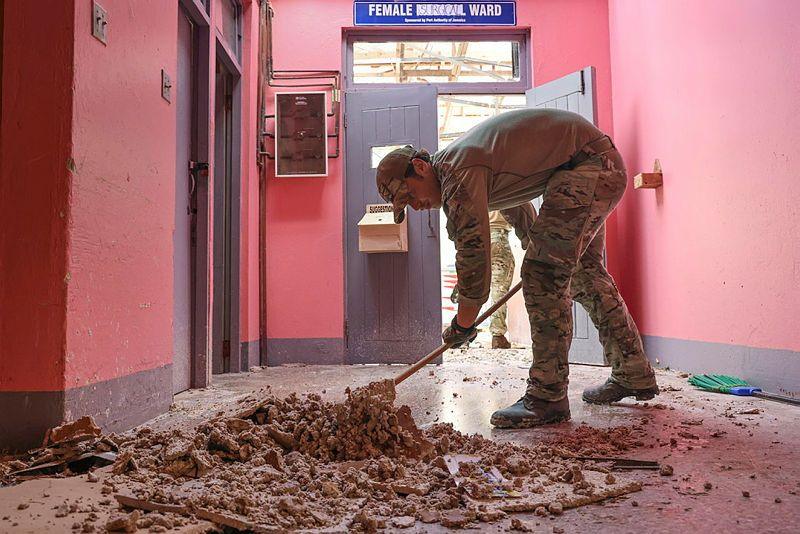
The high winds had ripped off the roof of wards and left infrastructure, like its boiler room, under four feet (1.2m) of water.
Now, 10 days later, I'm back and things are slowly improving.
At least 32 people have died since the storm ravaged Jamaica, causing some $7bn (£5.3bn) in damage, Jamaican Prime Minister Andrew Holness said.
Haiti and other parts of the Caribbean were also destroyed when the Category 5 storm pummelled through the region.
The heaps of twisted building material and water-damaged equipment is being cleared by men and women from the Royal Navy and Commandos from the Army's Crisis Response Troop.
There are helping hands, too, from a Spanish team who are here to build a field hospital.
Essential for getting scrubs clean and bedding washed, the laundry is still in a terrible state, its roof now just exposed beams. That is the next job for a group of the Commandos, working out how to fix problems with few options that desperately need a solution.
The team inside the boiler room includes local workers and Naomi Pearmine, a Marine Engineer.
Her job as a technician is normally to look after the fuel system, the engines and propulsion of HMS Trent, the Royal Navy offshore patrol vessel that is tasked with helping here in Jamaica.
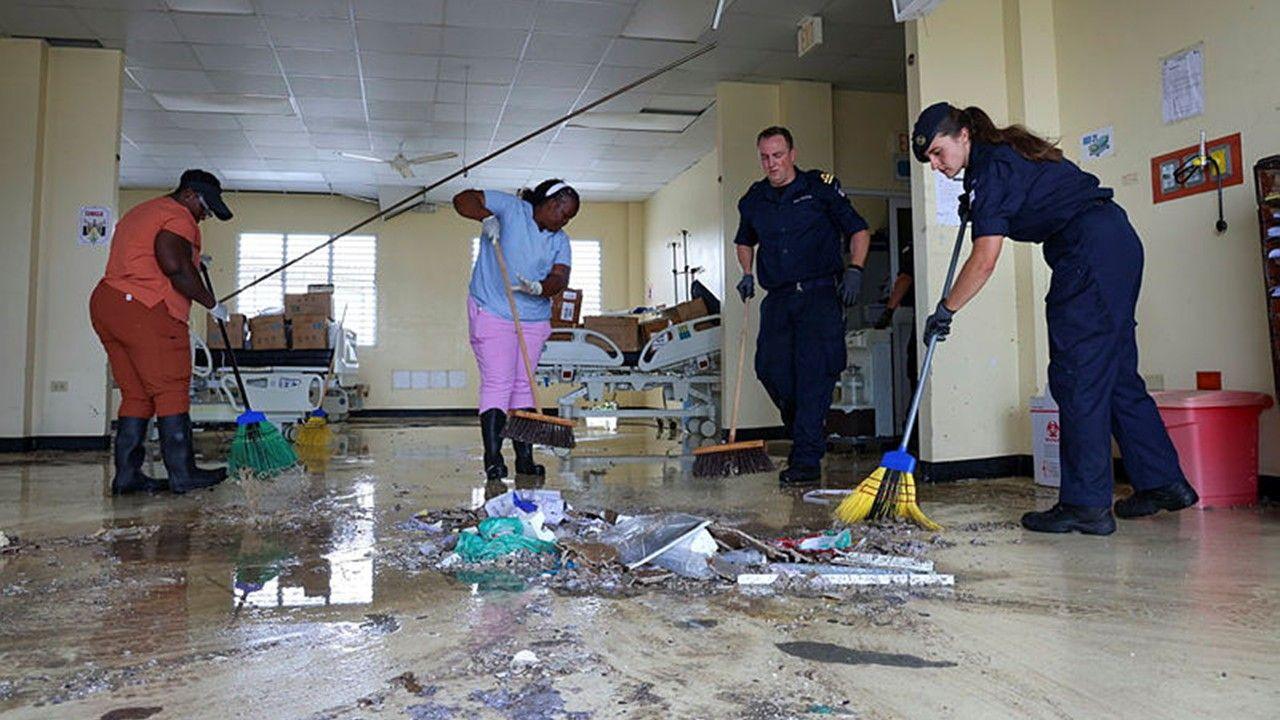
She normally would not take part in missions like this, but getting the ignition going is key to getting the hospital operational.
Machelle Stubbs, the chief medical officer at the hospital, explained how important it is to get help at this point.
"Many of our staff are still here, working," she said. "Not getting a chance to look after their own personal challenges, that compounds the problems even more. Fortunately we're getting relief from other parts of the island and other international agencies."
Clean-up teams from Jamaica's health ministry came in last weekend, carried in on Jamaica's bright yellow public buses to help their colleagues in need.
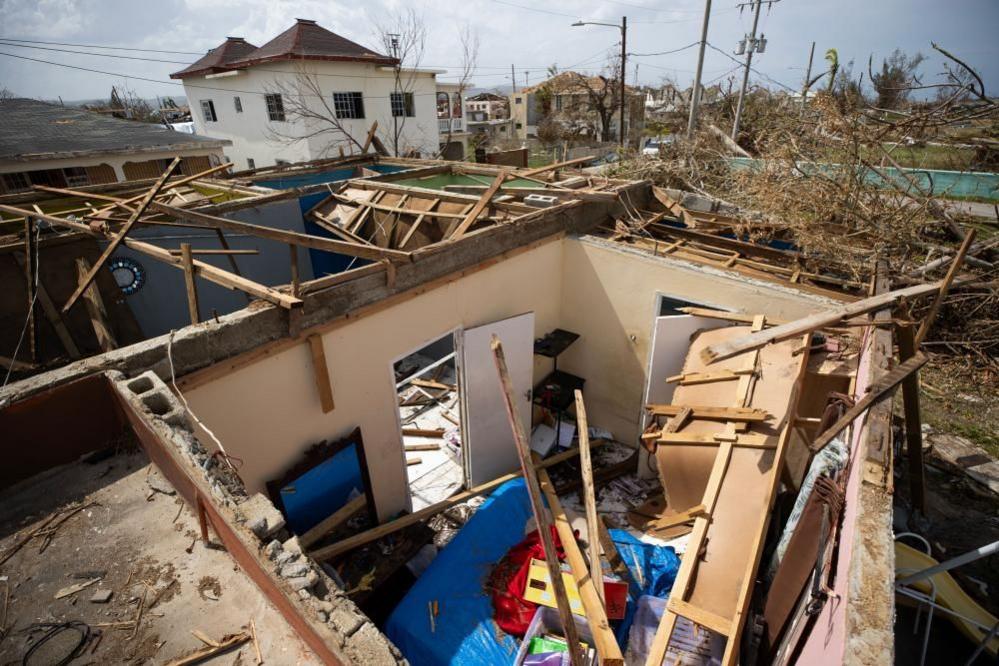
But today it is help from abroad that is essential.
HMS Trent was sent to the Caribbean to provide assistance to British Overseas Territories and Commonwealth Nations during hurricane season.
First Lt Jacob Mikurenda is the second in command. He said that for sailors on this deployment it is a chance to put all their skills together in a situation that's different from their normal duty.
For many sailors, this deployment - to provide humanitarian aid and disaster relief - was the first land operation of their careers.
"It's been amazing to see the resilience and the community of the people to recover after the hurricane," Mr Mikurenda said.
The scale of the disaster can be seen in the little details as well as the big ones.
The staff hung sheets on make-shift washing lines running along the walkways to the wards. There are crumpled signs for hospital departments strewn on the ground and medical records drying on a tarpaulin between the admin offices.
Keriesa Bell Cummings the hospital's CEO summed it up: "It's traumatising it really is but as the leader here I have to stay strong."
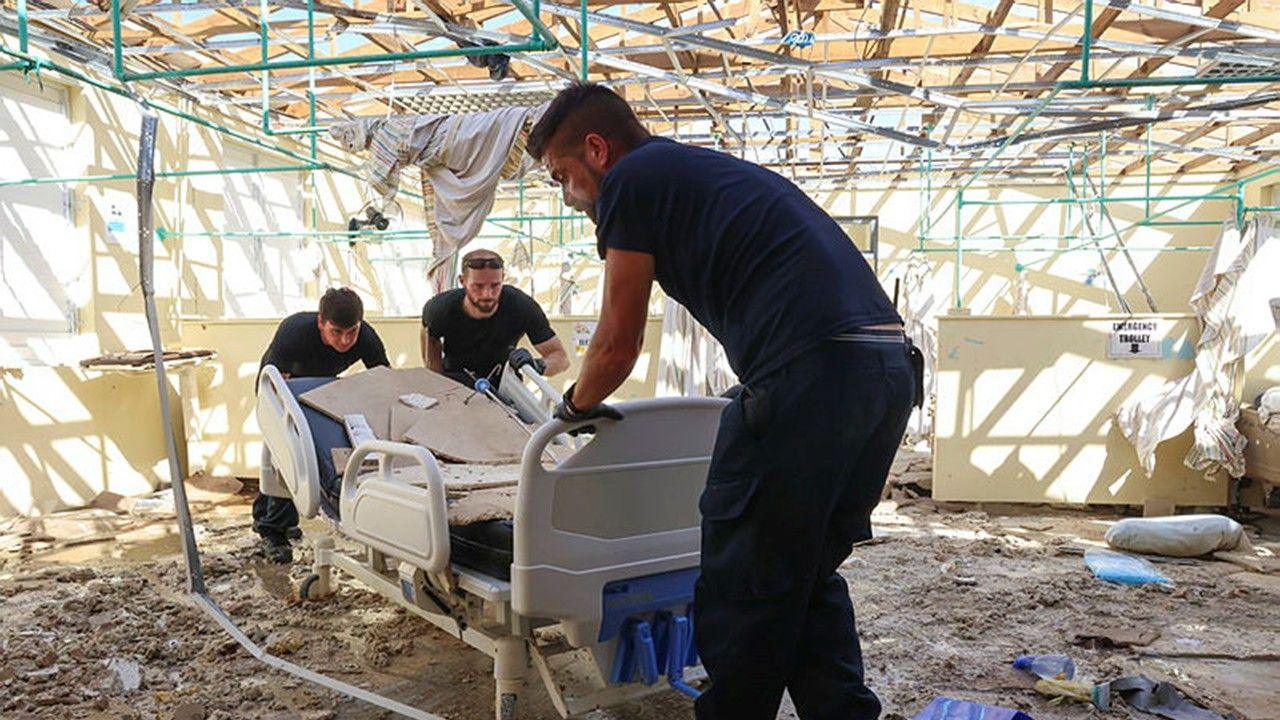
She has been organising people from around the world - diplomats, helpers from hospitals in other less affected parts of the island and the country's health ministry - to help with the efforts.
Initially she said she was too busy to be interviewed, but then she wanted to express that things were coming back to normal.
"A lot of material support, relief, tools, labour, food, we asked for it and it's now coming," Ms Cummings said.
Communications are still an issue here in Falmouth and our region, but there is hope it gets better in the days to come.
WhatsApp and phone are still patchy, making calls difficult and co-ordination almost impossible.
But this week is better than last, a feeling most Jamaicans are clinging on to.
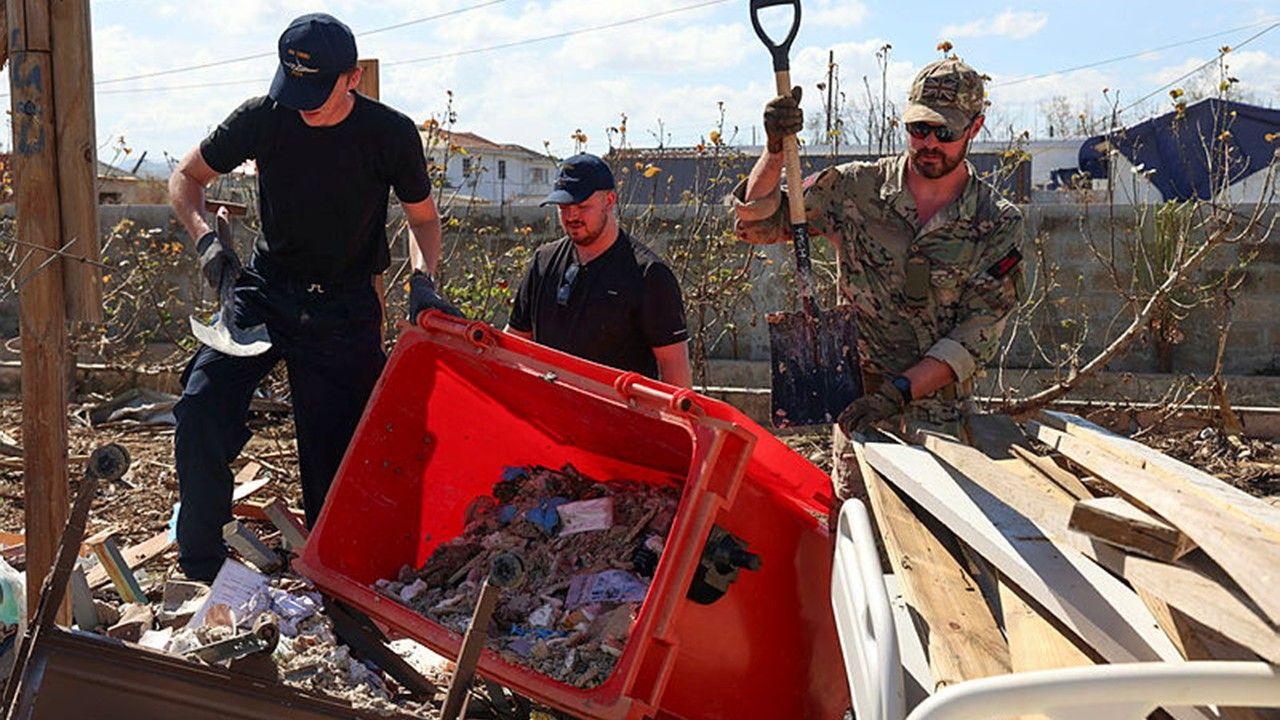
Related topics
- Published5 days ago
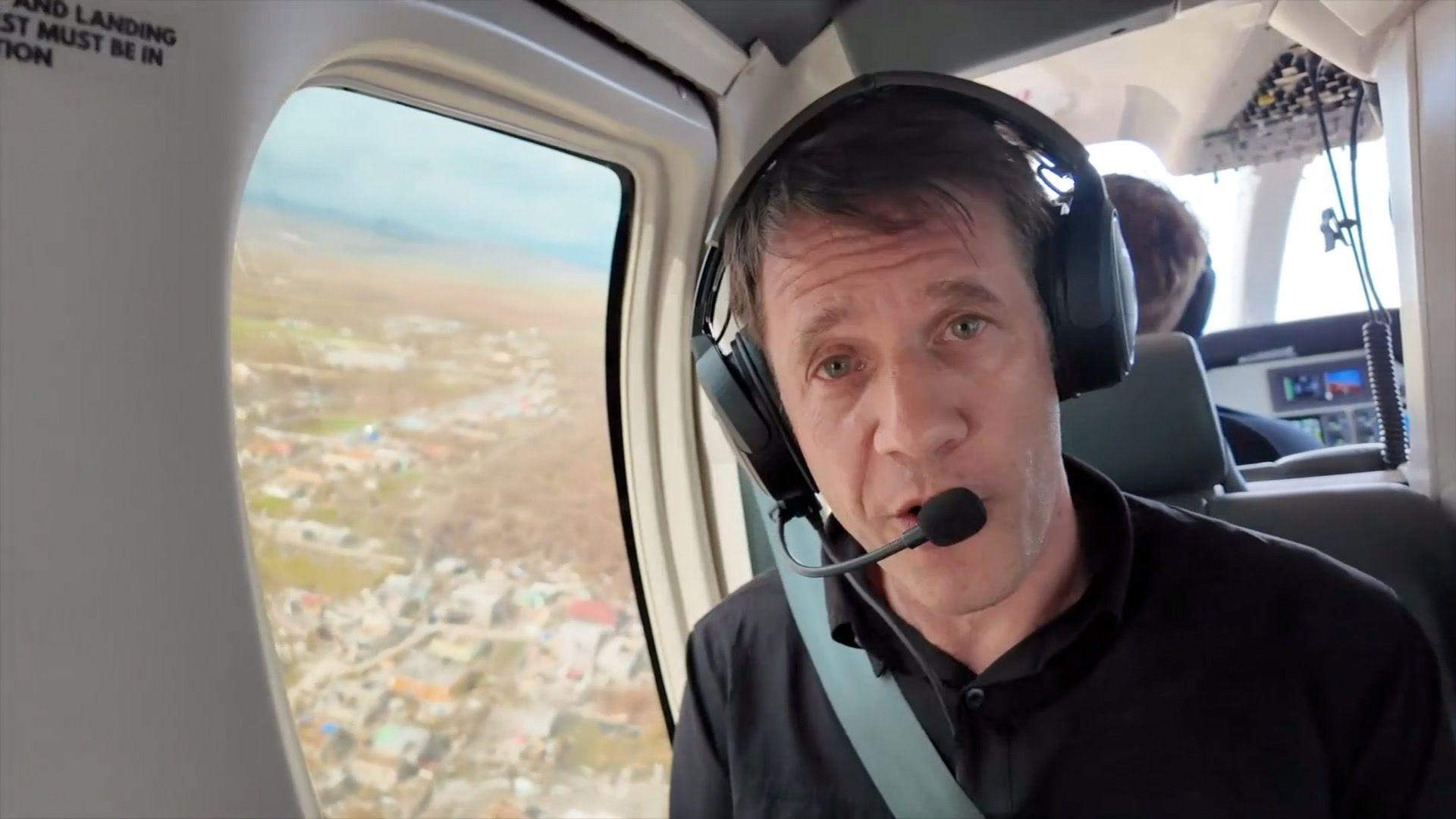
- Published1 day ago
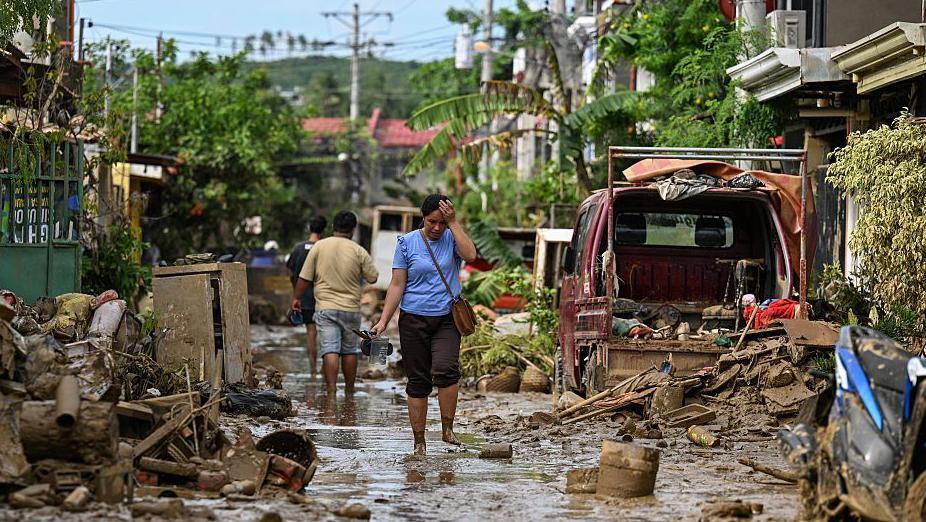
- Published31 October
